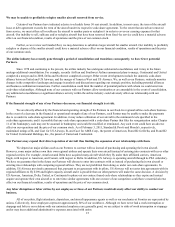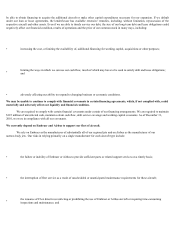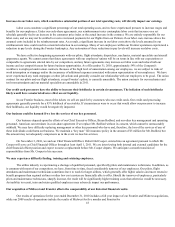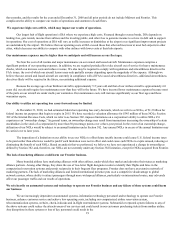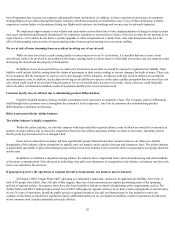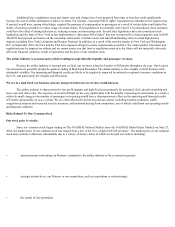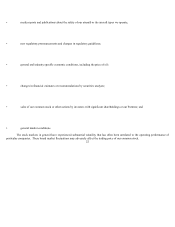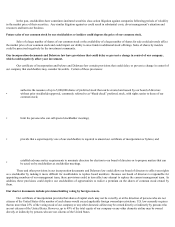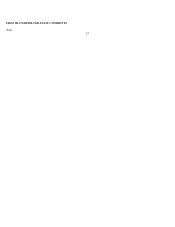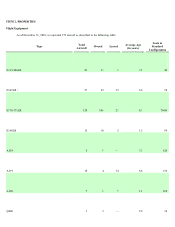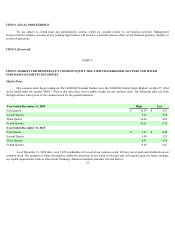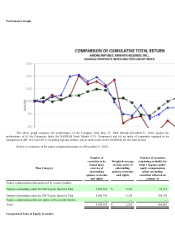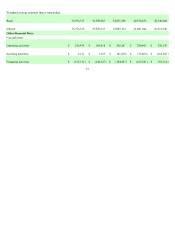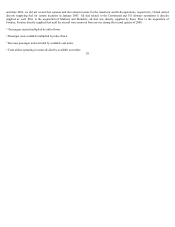Frontier Airlines 2010 Annual Report Download - page 32
Download and view the complete annual report
Please find page 32 of the 2010 Frontier Airlines annual report below. You can navigate through the pages in the report by either clicking on the pages listed below, or by using the keyword search tool below to find specific information within the annual report.In the past, stockholders have sometimes instituted securities class action litigation against companies following periods of volatility
in the market price of their securities. Any similar litigation against us could result in substantial costs, divert management’ s attention and
resources and harm our business.
Future sales of our common stock by our stockholders or insiders could depress the price of our common stock.
Sales of a large number of shares of our common stock or the availability of a large number of shares for sale could adversely affect
the market price of our common stock and could impair our ability to raise funds in additional stock offerings. Sales of shares by insiders
could be perceived negatively by the investment community.
Our incorporation documents and Delaware law have provisions that could delay or prevent a change in control of our company,
which could negatively affect your investment.
Our certificate of incorporation and bylaws and Delaware law contain provisions that could delay or prevent a change in control of
our company that stockholders may consider favorable. Certain of these provisions:
•
authorize the issuance of up to 5,000,000 shares of preferred stock that can be created and issued by our board of directors
without prior stockholder approval, commonly referred to as “blank check” preferred stock, with rights senior to those of our
common stock;
• limit the persons who can call special stockholder meetings;
• provide that a supermajority vote of our stockholders is required to amend our certificate of incorporation or bylaws; and
• establish advance notice requirements to nominate directors for election to our board of directors or to propose matters that can
be acted on by stockholders at stockholder meetings.
These and other provisions in our incorporation documents and Delaware law could allow our board of directors to affect your rights
as a stockholder by making it more difficult for stockholders to replace board members. Because our board of directors is responsible for
appointing members of our management team, these provisions could in turn affect any attempt to replace the current management team. In
addition, these provisions could deprive our stockholders of opportunities to realize a premium on the shares of common stock owned by
them.
Our charter documents include provisions limiting voting by foreign owners.
Our certificate of incorporation provides that shares of capital stock may not be voted by or at the direction of persons who are not
citizens of the United States if the number of such shares would exceed applicable foreign ownership restrictions. U.S. law currently requires
that no more than 25% of the voting stock of our company or any other domestic airline may be owned directly or indirectly by persons who
are not citizens of the United States. However, up to 49% of the total equity of our company or any other domestic airline may be owned
directly or indirectly by persons who are not citizens of the United States


